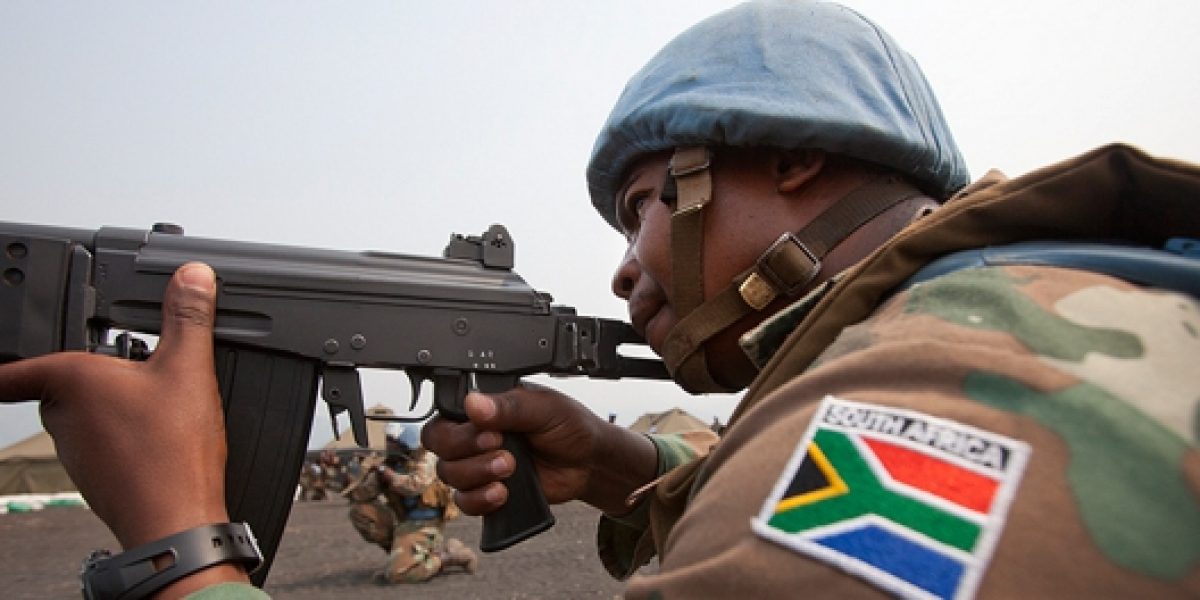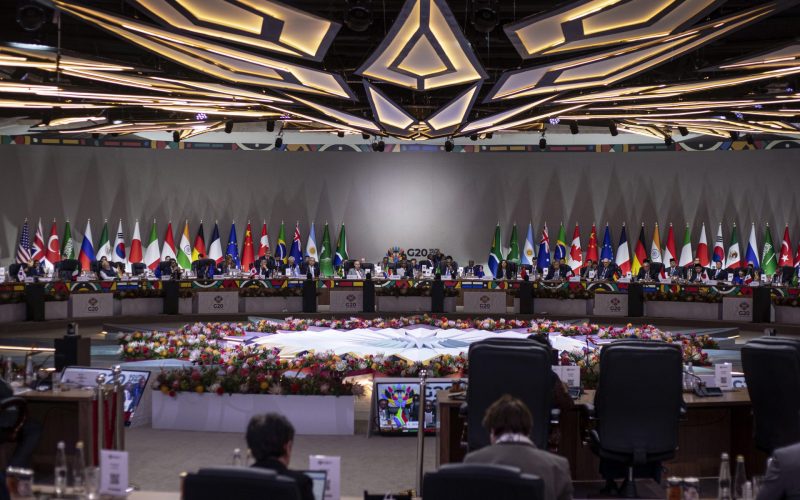The ongoing instability in the Arab Spring countries illustrates that new orders might necessarily go through protracted convulsions before their true nature is revealed. These conflicts are far from South Africa geographically, yet are also proximate. The ANC government has always advocated the Palestinian cause and been a harsh critic of Israeli occupation.
On Syria, South Africa disagreed with the West’s hardline approach, concerned it would spawn the mayhem that engulfed Libya. On Ukraine, South Africa has had a more muted response since the conflict escalated in late February, but one that nevertheless is consistent with its opposition to the West’s promotion of democracy or regime change (perceived or otherwise).
South Africa’s post-1994 philosophy has been that military solutions are no guarantee of a genuine self-sustaining peace. Ideally, conflict resolution should be multilateral and favour diplomacy. The country has been a strong proponent of non-interference in the internal affairs of sovereign states and, in line with the AU, has adhered to the principle of the inviolability of borders.
On Ukraine, South Africa’s public statements have focused on the need for dialogue in the interest of stability. These are valid points but, as with the Israeli-Palestinian conflict, need to be placed in the context of who wields greater force.
Soon after the referendum in Crimea, South Africa abstained on the UN General Assembly resolution on the territorial integrity of the Ukraine on March 27 this year as did Brazil, China and India, Russia’s other Brics partners.
As chairperson of the Brics when the foreign ministers met on the margins of the nuclear summit at The Hague in March, South Africa issued a statement that “the challenges that exist within the regions of the Brics… must be addressed within the fold of the United Nations in a calm and levelheaded manner”.
Neither South Africa nor other Brics members have condemned publicly any Russian actions against Ukraine. Russia is a member of Brics, a body to which South Africa accords priority, even though economically the US and the EU combined are bigger players in the country.
Russia does not see itself just as a regional power. Under Vladimir Putin, it has sought to assert its global role and influence. In its eyes the West has not accorded it the status it believes it deserves. Ukraine has thus become the stage for the test of wills between traditional Cold War adversaries.
Ukrainians still have vivid memories of Soviet repression, especially under Stalin, making this contest for many Ukrainians a struggle against a former imperial master. Both sides have used these fault lines to advance their particular objectives.
But the tipping point was the Crimean referendum and its annexation by Russia. It set in motion a potential precedent, which may boomerang on multi-ethnic states like Russia. It also violated the post-Cold War arrangements that included Ukraine giving up its nuclear weapons in return for the guarantee of its territorial integrity.
Russia has been ambiguous about the extent of its involvement in Ukraine. Yet, observing Russia’s engagement with its neighbourhood under Vladimir Putin reveals a strong propensity for the use of military means – overt or covert – whether in Georgia, the north Caucasus, Moldova or Ukraine.
The permanent five in the UN Security Council have a great responsibility to be judicious in their engagements and to exercise restraint in their actions as the ultimate guarantors of global peace and security (whether this is fair or not). Since the end of the Cold War, neither Russia nor the US in particular has always acted with such restraint.
The Ukrainian crisis poses a number of questions and dilemmas. First, how the challenge to Ukraine’s sovereignty and territorial integrity are tackled will have implications for the shape of the international order.
Already borders have been altered de facto in Iraq mechanisms in east Asia, how will disputes over territory and historical claims be addressed there? And what about African borders? Libya is fragmenting (thanks in part to the Nato operation which worsened fault lines), Mali’s divisions have not healed, and arcs of conflict persevere across the Sahel and central Africa.
Second, the growing voice of the demonstrators in the streets, sometimes with violent dimensions, is an increasing challenge even for democratic governments. This will pose more ethical dilemmas for governments and external actors. Is an armed uprising against a democratic state (however flawed), acceptable?
Third, do less powerful states have a right to determine their alliance partners or should there be a tacit acceptance of spheres of influence? It is for these reasons that South Africa needs to consider how its statements might be seen to condone the role played by Russia in fomenting and encouraging the separatists. South Africa’s credibility as an advocate for certain values is eroded by adopting equivocal positions; after all, South Africa’s soft power is in building legitimate and accountable processes for resolving conflicts, and in upholding international principles.
Our relationship with partners should be such that we feel comfortable enough to disagree with them when we feel that these principles are breached – as we do vocally with our US and EU partners but hardly ever with the BRICS members.
This includes encouraging our partners to respect institutional processes and international principles, and emphasising that great powers have a larger responsibility to abstain from the use of force (direct or indirect) as a means to solve crises. South Africa is not a player in Ukraine, but it has a stake in the outcome.








